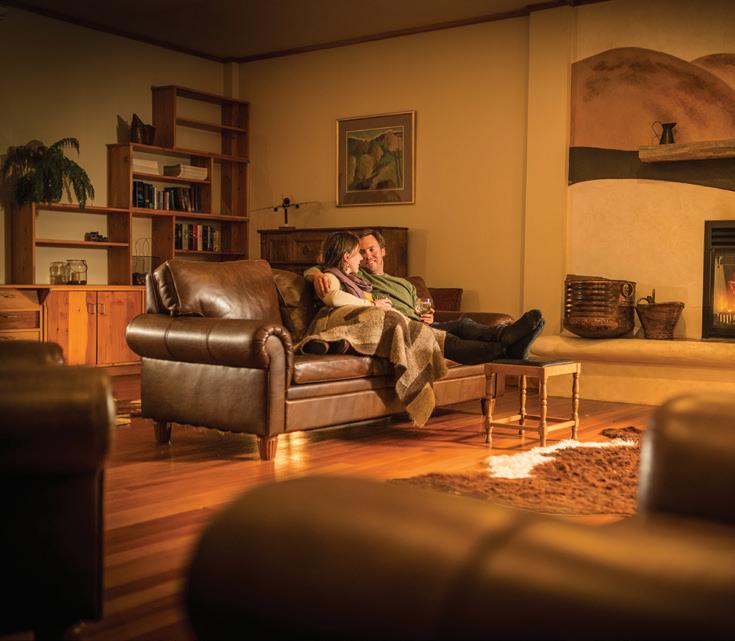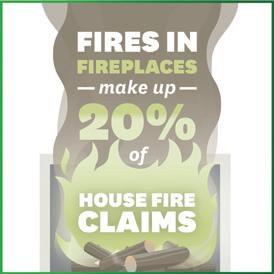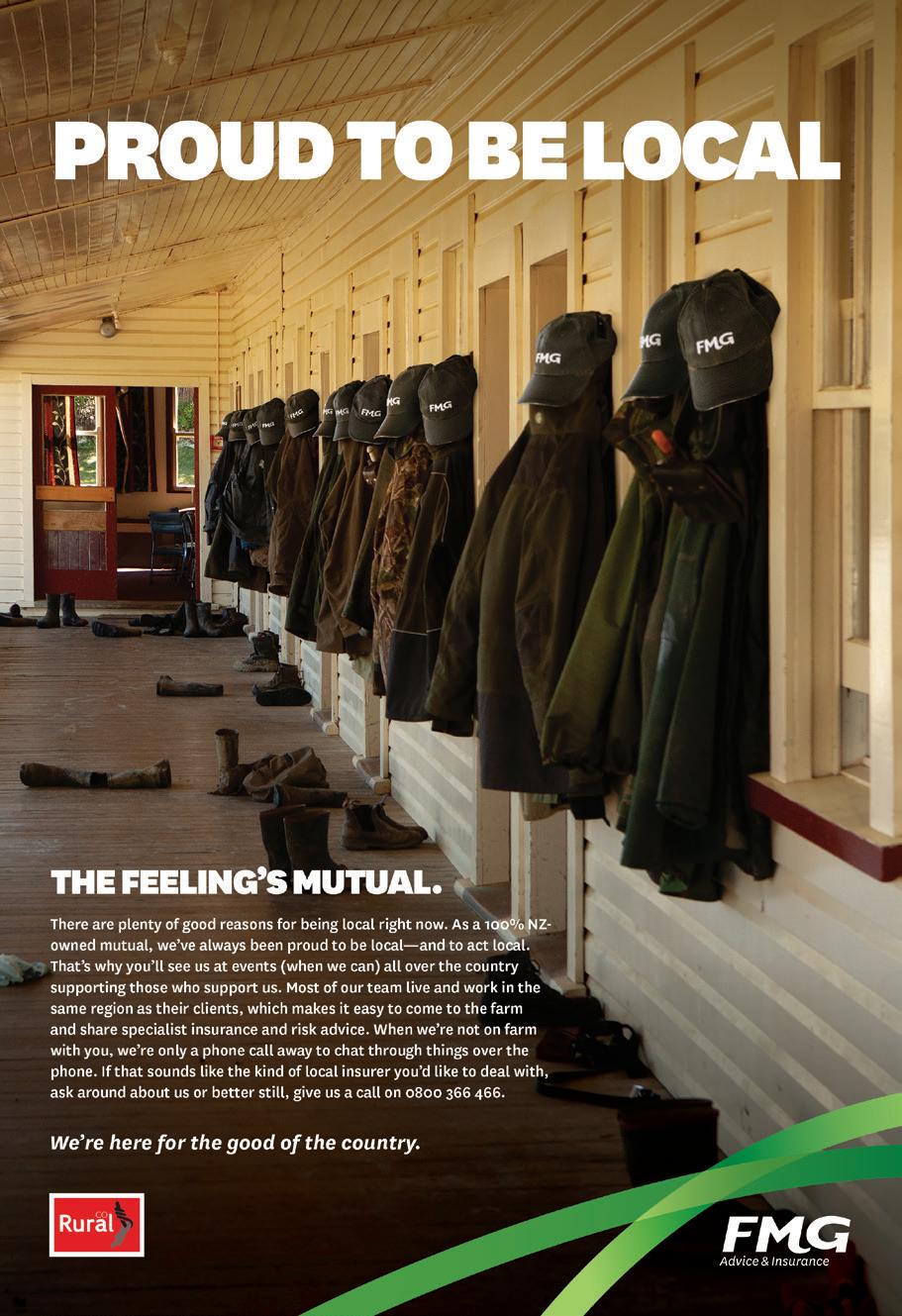
3 minute read
Keeping families safe from fire
by Ruralco
Every year around 150 FMG clients experience a damaging house fire. These fires are often traumatic events—a home is so much more than just walls and a roof. The leading causes of house fires in rural areas differ from those in urban areas. For instance, households in rural areas are twice as likely to use wood fires for heating—and more likely to experience a fireplace or chimney fire. What’s more, the damage caused by rural house fires is often worse because of the extra time it takes for emergency services to arrive. 75% of rural house fire claims are caused by: • Switchboards and wiring; • Appliances; • Chimneys and fireplaces; • Kitchen fires.
Fireplaces
Advertisement
Fireplaces were the leading cause of significant house fires in 2019. It’s really important to inspect your fireplace and chimney for deterioration. Now’s also a good time to give the chimney a sweep to remove creosote, soot and ash before winter. A fire guard is good idea too. Preventing fireplace and chimney fires: Inspect fireplaces and chimneys Ensure you have your fireplace and chimney inspected for deterioration and have the flue swept annually to clear out any debris and build-up of creosote, soot and ash. Sweeping out your chimney will not only help prevent chimney fires but also help to reduce fires caused by sparks from build-up of creosote. Never use accelerants Using flammable liquids, such as petrol, diesel or kerosene as a fireplace accelerant creates an extremely dangerous environment with the possibility of starting an uncontrollable fire, fume inhalation, and potential explosions. If your kindling and paper isn’t doing the trick, there are many safe alternatives, such as fire starters available from supermarkets and hardware stores. Install a fire guard A key cause of these fireplace claims is hot matter escaping the fireplace and damaging surrounding items and furnishings. You can easily reduce the chance of items escaping by installing a fire guard in front of your fireplace. While keeping everything in that’s meant to be there, a guard can also help prevent things, like little hands, from getting too close to the flames. Disposal of ashes Even after it’s out, you face a fire risk. Ashes can stay warm enough to start a fire for up to five days so it’s important to store them in a safe way until they’re cool enough to dispose of. Place ashes in a steel bucket, thoroughly doused with water, cover with a lid and put outside for at least five days before safely disposing of them.

Fire Alarms
There’s no doubt about it, fire alarms save lives. Fire and Emergency New Zealand (FENZ) found that in 80% of house fires they’ve attended, smoke alarms were either not properly installed or not working. Check your smoke alarms. Simply press the button to check they’re working and change the batteries if needed. Kitchen Fires
Kitchen fires are the most common cause of house fires. Unattended cooking can be dangerous so remember to turn off the stove when leaving the kitchen. Now’s the time to clean out the fat that may have built up in your rangehood filters.
WE’RE EXPERIENCING COLDER DAYS
AND NIGHTS SO NOW IS A GOOD
TIME TO CHECK THAT YOUR HOME IS SAFE FROM THE RISK OF A FIRE.
WORDS SUPPLIED BY FMG INSURANCE
Preventing kitchen fires.
• If you’re having a few drinks, avoid using the oven or stove—prepare food beforehand, or use the microwave. • Keep any flammable items such as curtains, tea towels and oven mitts well away from the cooking area. • Don’t overload plugs and switches – one appliance per switch. • Keep a fire extinguisher close by and know how to use it. • If you need to leave the kitchen, turn off the stovetop. • If your fry pan is on fire, place a wet tea towel over the pan, or a flat object (like a chopping board) to starve the fire of oxygen. Appliances
With more of us at home, overloaded multi boards or power sockets are a hazard. Unplug appliances not in use. Check for frayed or damaged cords as these can also lead to fires. Try to stick to the ‘one socket, one appliance’ rule.
For more advice about getting your house ‘winter ready’ head to www. fireandemergency.nz or www.fmg. co.nz/advice/house-fires to find FMG’s comprehensive House Fire’s Advice Guide.













